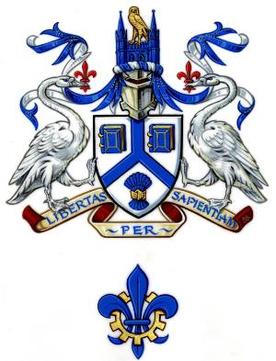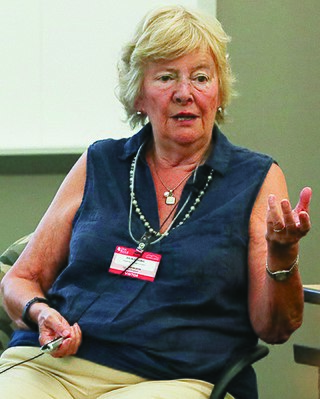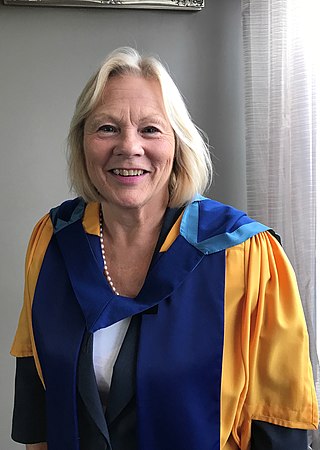
Imperial College London (Imperial) is a public research university in London, England. Its history began with Prince Albert, husband of Queen Victoria, who envisioned a cultural area including the Victoria and Albert Museum, the Royal Albert Hall, the Natural History Museum and several royal colleges. Established in 1907 by royal charter, Imperial College London merged the Royal College of Science, the Royal School of Mines, and the City and Guilds of London Institute to form a university college. In 1988, the Imperial College School of Medicine was formed through a merger with St Mary's Hospital Medical School. In 2004, Queen Elizabeth II opened the Imperial College Business School.

All Souls College is a constituent college of the University of Oxford in England. Unique to All Souls, all of its members automatically become fellows. It has no student members, but each year, recent graduates at Oxford are eligible to apply for a small number of examination fellowships through a competitive examination and, for those shortlisted after the examinations, an interview.

The University of Liverpool is a public research university in Liverpool, England. Founded as a college in 1881, it gained its Royal Charter in 1903 with the ability to award degrees, and is also known to be one of the six 'red brick' civic universities, the first to be referred to as The Original Red Brick. It comprises three faculties organised into 35 departments and schools. It is a founding member of the Russell Group, the N8 Group for research collaboration and the university management school is triple crown accredited.

Aberystwyth University is a public research university in Aberystwyth, Wales. Aberystwyth was a founding member institution of the former federal University of Wales. The university has over 8,000 students studying across three academic faculties and 17 departments.

Darwin College is a constituent college of the University of Cambridge. Founded on 28 July 1964, Darwin was Cambridge University's first graduate-only college, and also the first to admit both men and women. The college is named after one of the university's most famous families and alumni, that of Charles Darwin. The Darwin family previously owned some of the land, Newnham Grange, on which the college now stands.

The University of Lincoln is a public research university in Lincoln, England, with origins dating back to 1861. It gained university status in 1992 and its present name in 2001. The main campus is in the heart of the city of Lincoln alongside the Brayford Pool. There are satellite campuses across Lincolnshire in Riseholme and Holbeach and graduation ceremonies take place in Lincoln Cathedral.

Ruth Lynn Deech, Baroness Deech, DBE is a British academic, lawyer, bioethicist and politician, most noted for chairing the Human Fertilisation and Embryology Authority (HFEA), from 1994 to 2002, and as the former Principal of St Anne's College, Oxford. Deech sits as a Crossbench peer in the House of Lords (2005–) and chaired the Bar Standards Board (2009–2014).

Bayes Business School, formerly known as Cass Business School, is the business school of the City, University of London, located in St Luke's, just to the north of the City of London. It was established in 1966, and it is consistently ranked as one of the leading business schools in the United Kingdom.
The House of Lords Appointments Commission (HOLAC) is an independent advisory non-departmental public body in the United Kingdom with oversight of some aspects of the Peerage of the United Kingdom. It has two roles:

Dame Julia Stretton Higgins is a British polymer scientist. Since 1976 she has been based at the Department of Chemical Engineering at Imperial College London, where she is emeritus professor and senior research investigator.

Rev. John Ignatius Jenkins, C.S.C. is an American Catholic priest of the Congregation of Holy Cross. He is best known for his service as the 17th president of the University of Notre Dame from 2005 to 2024. He previously served as its vice-president and associate provost. He replaced Edward Malloy as president.
Sir Deian Rhys Hopkin is an academic and historian, former vice chancellor and former President of the National Library of Wales. From 2013 to 2020, he served as Chair of Wales Remembers 1914-1918 and was expert adviser to the First Minister of Wales for the Centenary of the First World War. Hopkin was from 2001 until 2009 vice-chancellor and chief executive of London South Bank University, England. From 2011 to 2015, he was president of the National Library of Wales. He is a historian, originally from Wales and a fluent Welsh speaker.
Rev. Edward Aloysius Malloy, C.S.C. is an American Catholic priest, academic, and former college basketball player who is a member of the Congregation of Holy Cross. Nicknamed “Monk Malloy”, he is best known for his service as the 16th president of the University of Notre Dame from 1987 to 2005.
Kenneth Donald John Macdonald, Baron Macdonald of River Glaven, is a British lawyer and politician who served as Director of Public Prosecutions (DPP) of England and Wales from 2003 to 2008. In that office he was head of the Crown Prosecution Service. He was previously a recorder and defence barrister. He is a life peer in the House of Lords, where he sits as a crossbencher and was previously a Liberal Democrat. He was Warden of Wadham College, Oxford until 2021.

Sir Robert Andrew Burns is a British former diplomat in the Foreign and Commonwealth Office.

The School of Law at the University of Glasgow provides undergraduate and postgraduate courses in Law, and awards the degrees of Bachelor of Laws, Master of Laws, LLM by Research, Master of Research (MRes) and Doctor of Philosophy, the degree of Doctor of Laws being awarded generally only as an honorary degree.
Fellowship of the Institute of Physics (FInstP) is "the highest level of membership attainable" by physicists who are members of the Institute of Physics (IoP), "for those with a degree in physics or related subject and who have made a significant impact on their sector"; it is for "distinguished physicists in recognition of their accomplishments".
The Honours Committee is a committee within the Cabinet Office of the Government of the United Kingdom formed to review nominations for national honours for merit, exceptional achievement or service. Twice yearly the Honours Committee submits formal recommendations for the British monarch's New Years and Birthday Honours. Members of the Honours Committee—which comprises a main committee and nine subcommittees in speciality areas—research and vet nominations for national awards, including knighthoods and the Order of the British Empire.

Dame Ann Geraldine Limb is a British educationalist, business leader, charity chair and philanthropist. In September 2015, she became the first woman Chair of The Scout Association since the organization was founded by Robert Baden Powell in 1907. Limb also serves as the 789th High Sheriff of Buckinghamshire, the first Quaker to hold this office.













